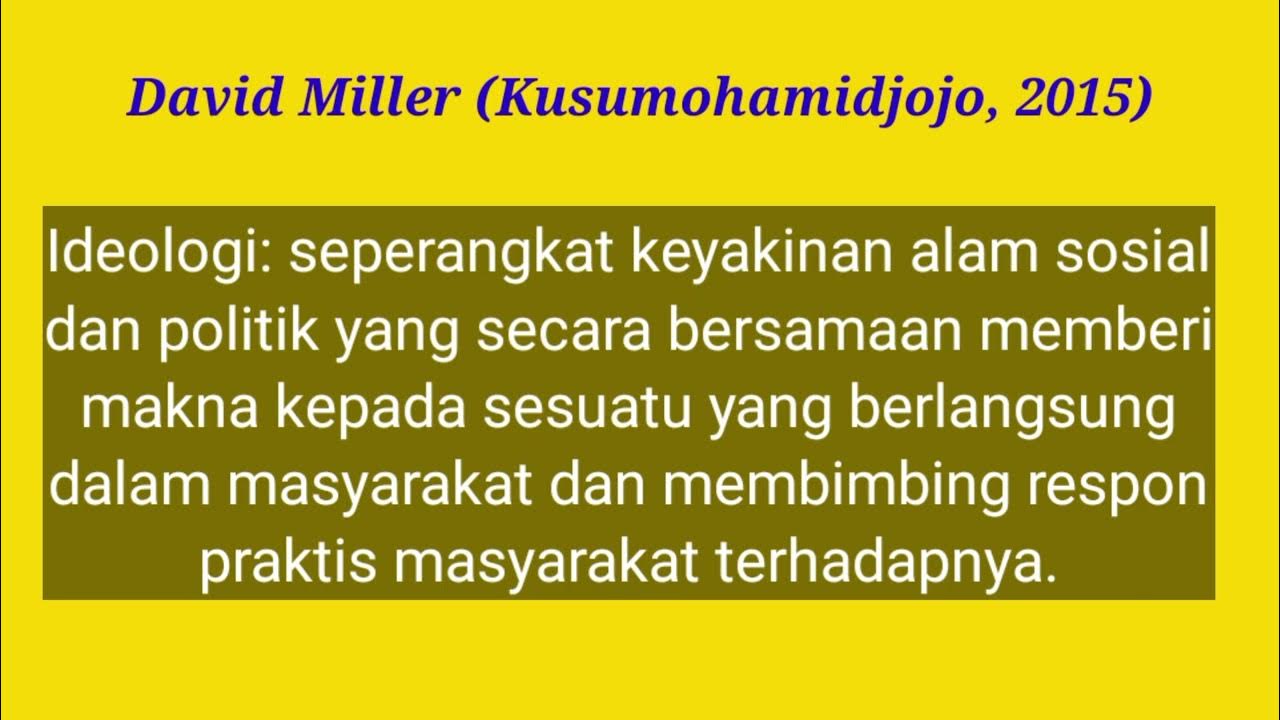HAKIKAT DEMOKRASI || ASAS DAN PRINSIP DEMOKRASI
Summary
TLDRThis video explores the essence of democracy in Indonesia, explaining its etymology and various expert definitions. It emphasizes that democracy means 'government by the people' and highlights key principles such as citizen participation, recognition of human dignity, separation of powers, accountability, and regular elections. The discussion underscores that while democratic systems may vary globally, they all aim to reflect the will of the people and uphold their rights, making democracy a foundational element of governance.
Takeaways
- 😀 Democracy originates from Greek, meaning 'government by the people'.
- 😀 Abraham Lincoln defined democracy as 'government of the people, by the people, and for the people'.
- 😀 Citizens have the right to participate in decision-making and governance.
- 😀 Human dignity and rights are protected by the Indonesian constitution, particularly in Articles 27-34.
- 😀 Key characteristics of democracy include governance based on public will and constitutional representation.
- 😀 The separation of powers is crucial to prevent abuse, dividing government into legislative, executive, and judicial branches.
- 😀 Government accountability is essential; officials must answer to the public for their policies.
- 😀 Democracy emphasizes peaceful conflict resolution and regular leadership transitions.
- 😀 Citizens are entitled to equal rights, including political, economic, and social freedoms.
- 😀 The rule of law is paramount; all citizens must adhere to it, ensuring justice and order.
Q & A
What is the etymological origin of the term 'democracy'?
-The term 'democracy' originates from Greek, where 'Demos' means 'people' and 'Kratos' means 'power' or 'governance', thus defining democracy as 'government by the people'.
How does Abraham Lincoln define democracy?
-Abraham Lincoln defines democracy as 'government of the people, by the people, for the people', emphasizing the role of the populace in governance.
What are the two main types of democratic principles mentioned?
-The two main types of democratic principles are the recognition of citizen participation in governance and the recognition of human dignity.
What are the basic characteristics of a democratic government?
-Basic characteristics of a democratic government include governance based on the will and interest of the people, separation of powers, and accountability of the government to its citizens.
What does the concept of separation of powers entail?
-The concept of separation of powers involves dividing government responsibilities among different branches, typically legislative, executive, and judicial, to prevent any single entity from becoming too powerful.
What is the role of elections in a democratic system?
-Elections play a critical role in a democratic system as they allow citizens to select their representatives and influence government policies.
What does the term 'supremacy of law' mean in the context of democracy?
-The supremacy of law means that all citizens, regardless of status, are subject to the law, which ensures that no one is above the law and that justice is upheld.
How is citizen involvement in decision-making reflected in democratic principles?
-Citizen involvement in decision-making is reflected through active participation in elections and other political processes that allow individuals to voice their opinions and influence policies.
What are some challenges to democracy mentioned in the transcript?
-Challenges to democracy include ensuring equal participation among citizens, maintaining accountability of government officials, and adapting democratic principles to various cultural and historical contexts.
What are some of the universal principles of democracy outlined in the script?
-Universal principles of democracy include peaceful conflict resolution, regular leadership changes, minimal use of violence, acceptance of diversity, and the establishment of justice.
Outlines

This section is available to paid users only. Please upgrade to access this part.
Upgrade NowMindmap

This section is available to paid users only. Please upgrade to access this part.
Upgrade NowKeywords

This section is available to paid users only. Please upgrade to access this part.
Upgrade NowHighlights

This section is available to paid users only. Please upgrade to access this part.
Upgrade NowTranscripts

This section is available to paid users only. Please upgrade to access this part.
Upgrade NowBrowse More Related Video

Pengertian dan Penjelasan tentang Demokrasi Indonesia | materi PPKn

Apa itu DEMOKRASI ? | Seri Sejarah dan Asal-usul

PENGERTIAN SEJARAH DAN KISAH HERODOTUS

Bab 1. Pancasila, Sub. A. Makna dan Hakikat Ideologi..(Kls XI/1)

Pengantar Ilmu Hukum 36 | Pengantar Hukum Kearsipan #belajar #universitasterbuka #hukum #tutorial

Demokrasi di Indonesia [2]
5.0 / 5 (0 votes)